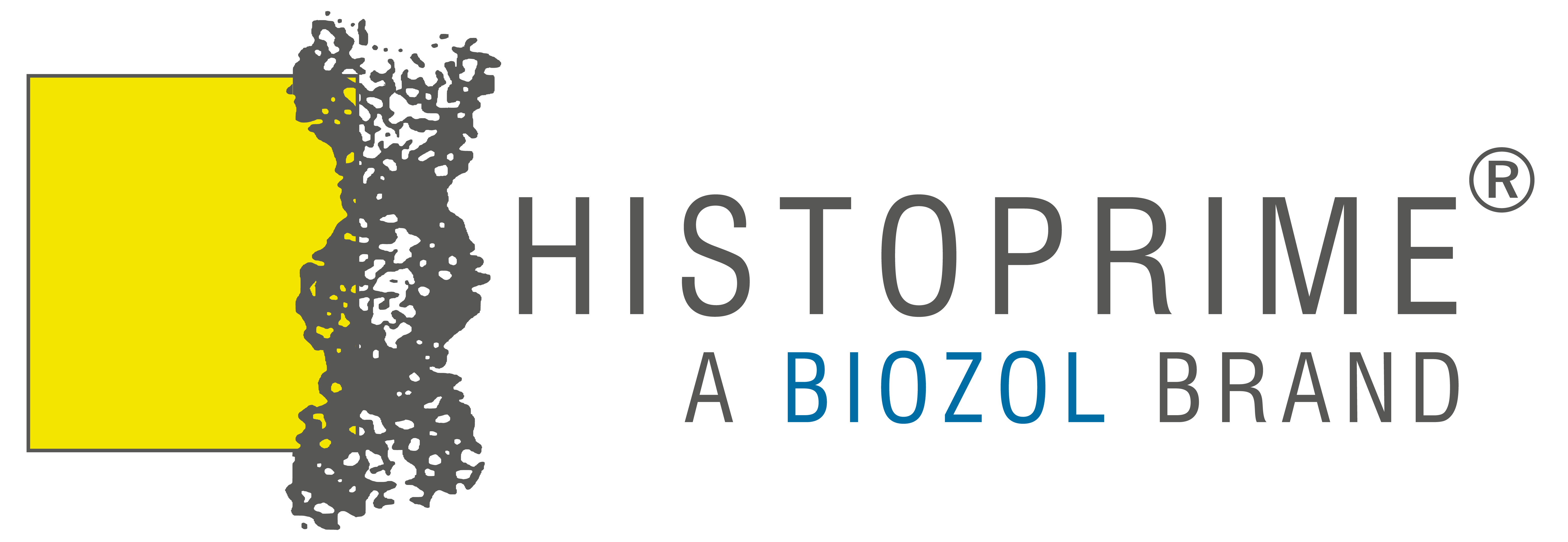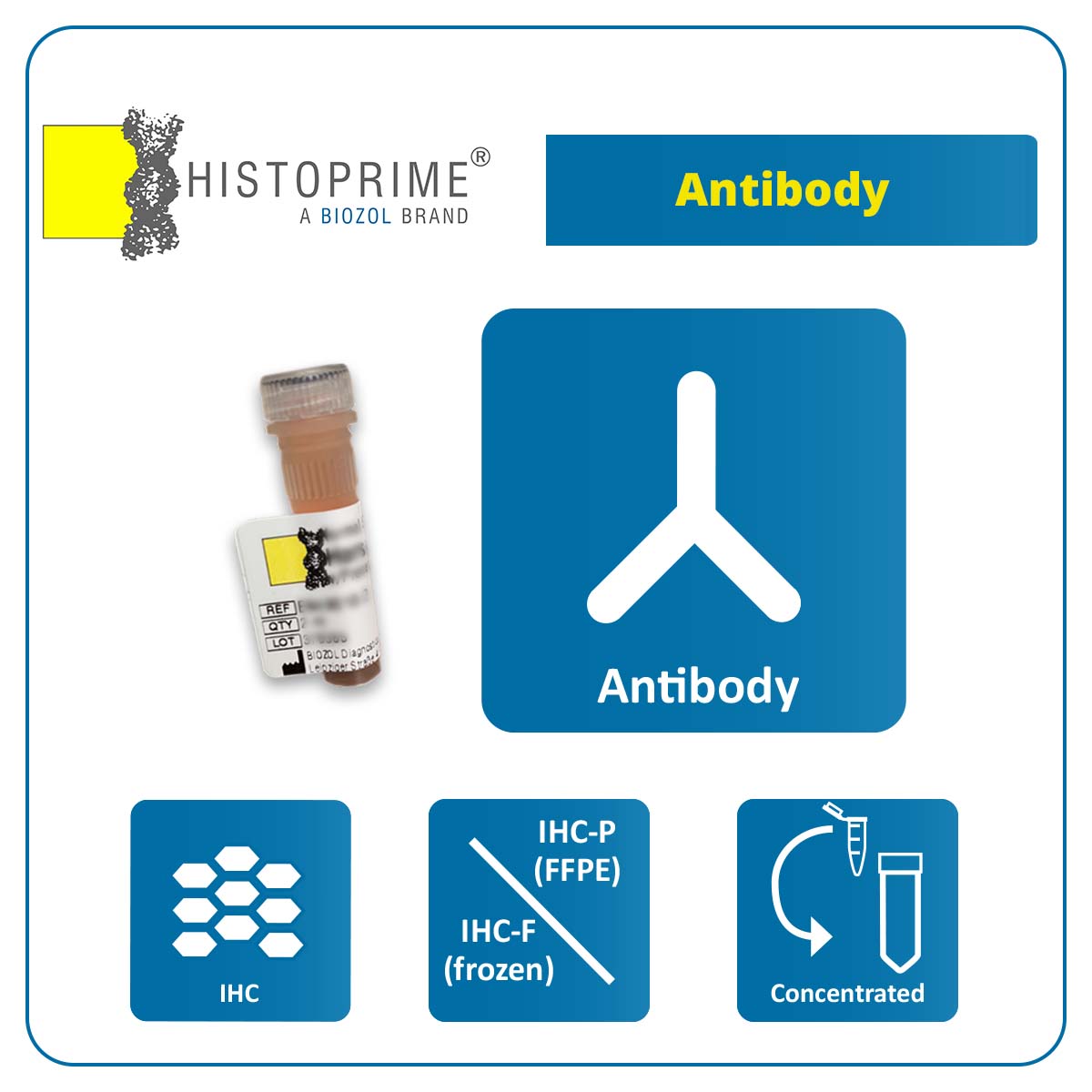Mouse anti-Human p53 (unconjugated), Clone DO-7, IgG2b, Purified
Concentrated Antibody for Immunohistochemistry
Background
Mouse anti p53 antibody, clone DO-7 recognizes the human 53 kDa p53 tumour suppressor protein, also known as Cellular tumor antigen p53 or Antigen NY-CO-13, encoded by the TP53 gene. p53 is a 393 amino acid protein with an N-terminal transactivation domain, followed by a proline-rich region and a DNA binding domain in the central core region. The C-terminal region contains a tetramirization domain and a terminal regulatory domain (Joerger et al. 2010).
p53 is intimately involved in a number of signaling pathways controlling cell division, cycling and apoptosis (Haupt et al. 2003) and is thus a potent cancer suppressor. In normal cells the level of p53 expression is low but can be induced by DNA damage or other stress signals (Takagi et al. 2005). Activation of p53 leads to growth arrest through its interaction with p21, GADD45 and 14-3-3σ, DNA repair and potentially apoptosis through interaction with Bax, Apaf-1, PUMA and NoxA (Thakur et al. 2010). p53 is critically regulated by Mdm2 which can trigger p53 degradation by a ubiquitin dependent system (Moll and Petrenko 2003).
| Specificity | p53 |
|---|---|
| Species Reactivity | Bovine, Human |
| Host / Source | Mouse |
| Isotype | IgG2b |
| Application | IHC-F, IHC-P |
| Clone | DO-7 |
| Antigen | Human p53 |
| Quantity | 0, 1 mg |
| Format | Purified |
| Storage Temperature | 2-8 °C |
| Shipping Temperature | 2-8 °C |

